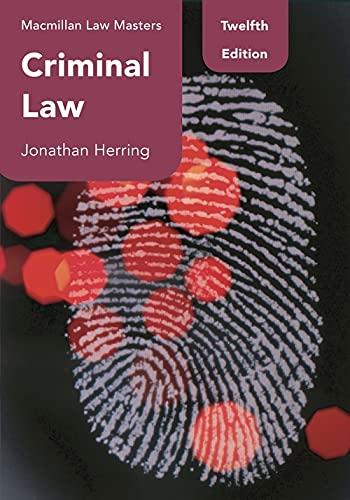Question
What is The Music Modernization Act and Why It Matters - The Verge The Music Modernization Act (MMA) represented a comprehensive overhaul of copyright regulations
What is The Music Modernization Act and Why It Matters - The Verge
The Music Modernization Act (MMA) represented a comprehensive overhaul of copyright regulations in the United States, specifically designed to address the challenges posed by the digital age in the music industry. Enacted on October 11, 2018, the MMA introduced crucial reforms to the music licensing and royalty payment systems. One of its key features was the creation of the Mechanical Licensing Collective (MLC), tasked with administering mechanical licenses for musical works and ensuring that songwriters and copyright holders received fair compensation from digital music services. Additionally, the legislation tackled the protection of pre-1972 sound recordings by bringing them under federal copyright, establishing a compulsory licensing system for digital platforms. Another notable aspect was the Allocation for Music Producers (AMP) Act, which addressed the allocation of digital performance royalties to music producers. The MMA aimed to streamline licensing processes, enhance protection for music creators, and adapt copyright laws to the contemporary digital landscape, marking a pivotal moment in the evolution of the music industry's regulatory framework.
Brief Description of Titles:
Title I - Mechanical Licensing Collective (MLC): Establishes the MLC to handle mechanical licenses for musical works in the digital space. This title aims to simplify and streamline the licensing process, ensuring that songwriters and copyright holders receive appropriate compensation for their works.
Title II - Compulsory Licensing for Pre-1972 Sound Recordings: Addresses the protection of pre-1972 sound recordings by bringing them under federal copyright protection. It also establishes a compulsory licensing system for digital services using these recordings.
Title III - Allocation for Music Producers (AMP) Act: Focuses on the allocation of digital performance royalties to music producers, aiming to ensure that producers receive a fair share of the revenue generated from digital performances.
Author's Position
Some may support the MMA, emphasizing the need for updated regulations in the digital age, fair compensation, and improved protection for artists. Others may express concerns about potential complications in implementation, the compulsory licensing system, or other aspects.
Potential Benefits and Harms:
Benefits: Streamlining the licensing process, ensuring fair compensation for artists, providing federal protection for pre-1972 sound recordings, and addressing the allocation of digital performance royalties to producers.
Harms: Concerns might include potential challenges in implementing the compulsory licensing system, unintended consequences, or disagreements over the allocation of royalties.
My Position:
Support for the Music Modernization Act (MMA) stems from a recognition of its positive impact on artists and creators within the music industry. My position, along with those who share this perspective, appreciates the focus on ensuring fair compensation for artists through streams. The advent of digital music platforms and streaming services has transformed the way people consume music, and the MMA addresses the need for an updated regulatory framework that reflects these changes. The establishment of the Mechanical Licensing Collective (MLC) and the compulsory licensing system under the MMA are seen as crucial mechanisms to simplify the licensing process. This, in turn, makes it easier for artists to receive direct compensation for their work without the layers of complexity often associated with traditional record label structures.
My position aligns with the idea that the MMA not only facilitates fair compensation but also embraces the efficiency of digital distribution. By enabling artists to be directly compensated for their music through streaming platforms, the legislation aligns with the contemporary landscape of music consumption. The streamlined process helps bridge the gap between artists and their audience, fostering a more direct and transparent relationship. Additionally, the recognition of the challenges posed by the digital era and the subsequent adaptation of copyright laws demonstrates a commitment to the evolving nature of the music industry. Overall, My support for the MMA reflects an endorsement of its efforts to empower artists, simplify licensing procedures, and ensure a fair and direct flow of compensation in the dynamic realm of digital music.
Reflect: To recall, ponder, and communicate
Inquire: To seek information and/or provide ideas through questioning
Suggest: To introduce ideas for improvement of current iteration
Elevate: To raise to a higher degree or purpose of future iterations
Step by Step Solution
There are 3 Steps involved in it
Step: 1

Get Instant Access to Expert-Tailored Solutions
See step-by-step solutions with expert insights and AI powered tools for academic success
Step: 2

Step: 3

Ace Your Homework with AI
Get the answers you need in no time with our AI-driven, step-by-step assistance
Get Started


